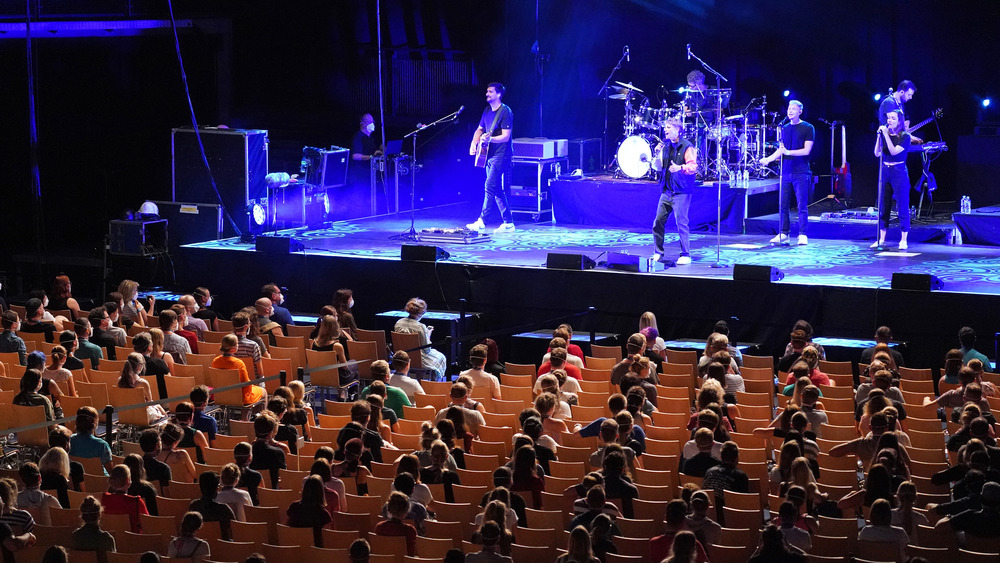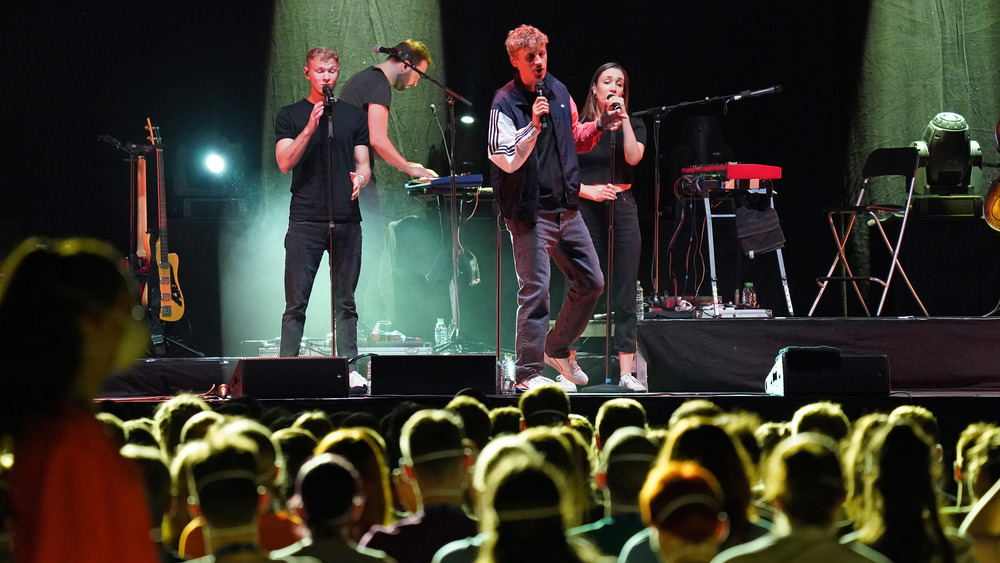Here's How Concerts Might Look Different With COVID-19 Safety Measures
Attending a live concert without spreading the coronavirus could involve wearing a mask throughout the event, increasing space around attendees, and improving the ventilation — good news for anyone who's ever packed in tight during standing room only shows, researchers in Germany say (via Healthline).
Researchers from three universities asked German singer-songwriter Tim Bendzko to hold a live show for 1,212 volunteers in August to test how concerts and other live events could be staged safely with precautions against spreading COVID-19. All participants, including staff, tested negative for the coronavirus within 48 hours ahead of the event. They also wore N95 masks and contract tracing devices throughout the concert, researchers said.
The researchers ran three different scenarios involving different physical distancing restrictions, including seating attendees in a checkerboard pattern for adequate space. They also tested different ventilation options and doubled the number of entrances to reduce crowding, one precaution that concert-goers certainly would appreciate on the trek to the parking lot afterward.
They found that the potential for exposure "increased substantially" when a venue failed to implement social distancing precautions or had a poor ventilation system, according to Healthline.
Safety measures at a true live show could be tough to enforce
The study has not been peer-reviewed, but Dr. Clinton Christopher Haley, an infectious disease specialist at Baylor University Medical Center in Dallas, Texas, said the research is promising. "This was a very exciting study because it reinforces that what the public health officials have been saying is truly effective," Haley told Healthline.
However, strict hygiene and physical distancing measures may be challenging to enforce at a real concert, Haley said. "Volunteer participants in a study and people who really want to go see a concert are two very different types of people, and their willingness to stick with scientific precautions could be very different," he added.
Infectious disease specialist Dr. Andrés Henao at the University of Colorado Anschutz Medical Campus agreed that more research is needed before events ditch streaming for live venues. "You could have an outbreak at an event like this that infects thousands and thousands of people," he told Healthline. "It's still premature to move forward."


